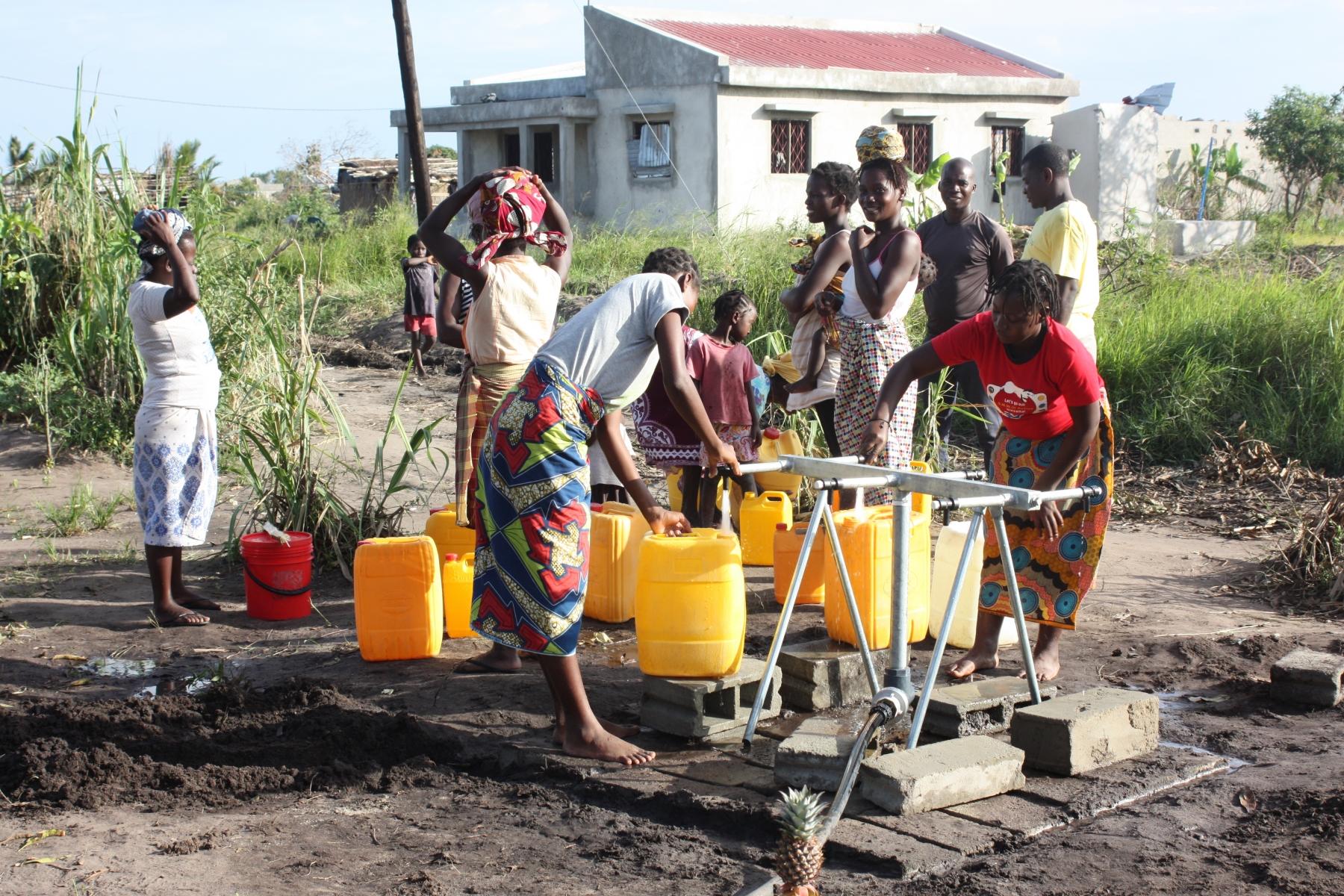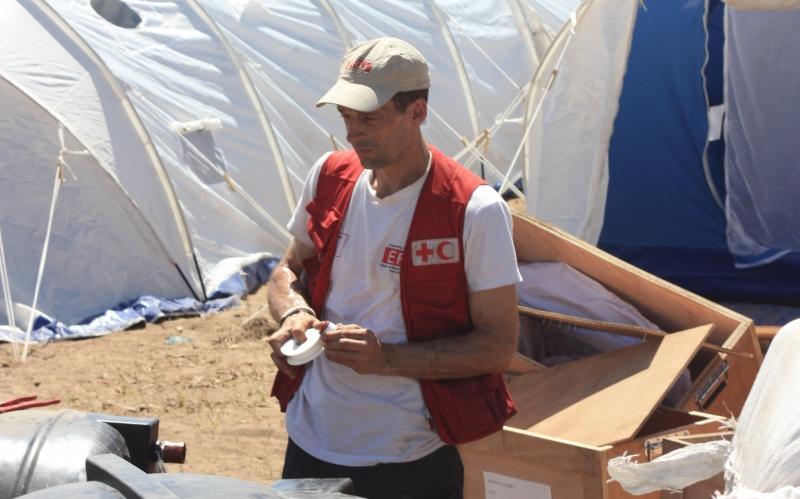
You set off very soon after the disaster took place. You were one of the first humanitarian aid workers to arrive on the ground alongside the various Red Cross staff members...
Cédric Thévenot: Yes, as a member of the Red Cross ERU, I am regularly asked to travel to disaster areas and be on the front line. To tell you the truth, I like it! Of course, there is a surge of adrenaline as you want to help the disaster-hit communities as soon as possible, and at the same time you have to manage phases of inertia, when everyone is getting organised and is coordinating, even as people need help. This may take several hours or half-days, but when faced with a distraught population who are shocked by what has just happened, it is always difficult.
In this case, a cargo plane arrived 24 hours after us, so we unloaded the equipment and identified a storage warehouse. At the same time, the NGOs were trying to assess the needs and rank the priorities, which was not easy at all given that a large number of areas were still inaccessible. All in all, the atmosphere really is unique.
Was the scale of the disaster clear right from the outset?
CT: No, because the affected area was very big and most of the roads were impassable for the first few days. We only had one or two helicopters available. Logistics were the main issue: how to travel around, how to transport the equipment etc. We needed to find vehicles and drivers. And then sometimes you have pleasant surprises such as when we came across 5,000m³ of drinking water stored by the local operator since the supply system had been shut down. This meant that we could arrange water trucking to deliver the water to the local population.

Knowing where to produce water is not obvious in this context...
CT: As there was a need to manage the flow of injured people who were going to arrive and the cholera outbreak feared by all the NGOs, medical centres were the priority. We installed water treatment and drinking water storage units, as well as latrines, near to hospitals and in the temporary camps for the cyclone victims.
Heading off to a disaster zone with virtually no prior warning requires both personal and professional organisation. How did you cope?
CT: I am fortunate enough to have a colleague, Mickaël Pannard, at Doubs where I work, who is also a Veoliaforce volunteer, and we are very supportive of each other. When one of us goes to do humanitarian work, the other one ensures that everything runs smoothly in the team. From a personal perspective, as I have been in the ERU for a decade and I have been a Veoliaforce volunteer for close to 15 years, my family are well aware of the fact that I may head off at any time! We have two children and the advantage is that real life restarts very quickly when you get back...

